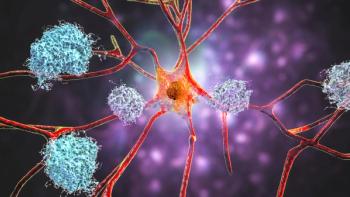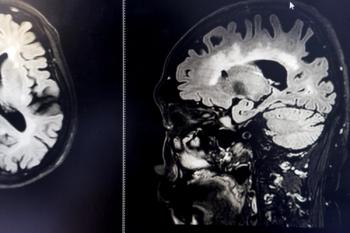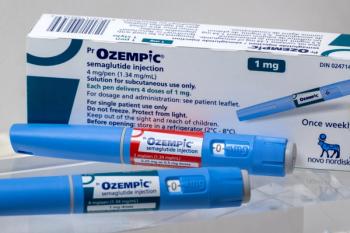
Edward B. Lee, MD, PhD, also describes how understanding Alzheimer disease requires the integration of multiple fields including genetics, pathology, epidemiology, pharmacology, and physiology.

Edward B. Lee, MD, PhD, also describes how understanding Alzheimer disease requires the integration of multiple fields including genetics, pathology, epidemiology, pharmacology, and physiology.

Study results demonstrated that lecanemab provided sustained benefits over 36 months, such as improved biomarker profiles and slowed cognitive decline compared with placebo.

Tara Spires-Jones, DPhil, FMedSci, discusses how oligomeric tau clumps inside brain synapses, pointing to indirect evidence that it may be progressing through the brain by jumping between connections.

The co-founder, chief science officer, and chairman at Longeveron discusses the findings from the phase 2a trial CLEARMIND, as well as next steps to developing the therapy Lomecel-B.

The findings indicate that zoster vaccine recombinant reduced dementia risk by 17% in an analysis of over 200,000 patients.

Joshua Hare describes how Lomecel-B addresses neuroinflammation, unlike other treatments which typically target amyloid disposition.

Benzgalantamine (Zunveyl; Alpha Cognition) is a cholinesterase inhibitor indicated for the treatment of mild-to-moderate dementia in adults.

The FDA’s designation builds off positive results in a phase 1b/2a clinical trial, showing that the vaccine can effectively target the Tau protein.

Safety and efficacy findings on Lomecel-B will be presented at the upcoming 2024 Alzheimer’s Association International Conference, which will be held July 28 to August 1.

Donanemab-azbt is the first and only amyloid plaque targeting therapy that supports stopping therapy when the plaque is removed.

Anti-amyloid antibody administration decreased plaque volume in clinical trials of patients with early AD, indicating that passive immunotherapies could be a promising treatment for the disease.

The default-mode network method, which was analyzed using functional magnetic resonance imaging scans, was approximately 80% accurate when predicting dementia up to 9 years prior to a diagnosis.

Donanemab was able to significantly slow clinical progression of Alzheimer disease and amyloid and tau pathology at 76 weeks of treatment.

Data have shown the potential for the therapy to treat several new conditions.

Results from the INCREASE study shed light on the value of the pharmacist in medication therapy management.


If approved, the test could provide more timely and accurate diagnosis, hopefully mitigating the impact of Alzheimer disease (AD) on individuals and the community.

Linking strong anticholinergic medications to increased risk of dementia in older adults

A study about modifiable risk factors on a “weak spot” in the brain network found that diabetes, pollution, and alcohol were most likely to contribute to dementia disorders.

Investigators found that mRNA technology for the delivery of antibody therapeutics were used to target tau in Alzheimer disease and can be applied to other tau targets.

The FDA is convening a committee to discuss phase 3 data after the planned action date, which delays drug availability to patients.

The device conducts blood biomarker tests that accurately diagnose amyloid pathology and can assist in diagnosing Alzheimer disease in patients with cognitive impairment.

The authors emphasize that further research on a diverse population that focuses on the role of duration and lifestyle choices and neuroinflammatory markers should be performed.

The company will discontinue the development and commercialization of aducanumab-avwa (Aduhelm) for intravenous use and will terminate the ENVISION clinical study.

BrainSee creates a new standard for progression prediction in Alzheimer disease, marking a step forward in brain health management with non-invasive screening.